As a young African youth advocate for inclusion , education and culture, I had always wondered about two major things, the possibility of creating spaces where the voices of not just youths but youths with disabilities would be represented and where diverse people could commune with less barriers. Attending the Global Disability Summit 2025 was an opportunity to experience and participate in such a space first hand and this was a game -changer for me. This year’s summit, held in Berlin, brought together advocates, policymakers, and individuals with disabilities from around the world to discuss pressing issues and solutions for global disability inclusion .
The Summit Experience
As I walked into the into the summit venue, not only did the diversity a of attendees struck me but with the fact that these diverse people could comfortably access this large space which would go on to be where I spend the most of my transformative engagement in Berlin. The entrances into the different halls were built to accommodate different people and their assistive devices in such a way that they could get into these rooms and participate in the activities with little or no help thus emphasizing one of ny favorite lines that disability only exist as much as society lets it.
Also, the event with started with the civil society forum on the first day, with about 4500 attendees was graced with the presence of more youths than I expected to see, I met young people leading initiatives and organizations that advocated for change and inclusion , as they shared their journey , I resonated with their powerful voices, seeing youths
championing changes across the world was inspiring.
I attended sessions on inclusive education, employment, and accessibility, and was inspired by the stories of resilience and determination shared by speakers and panelists.
It was even more exciting to see youth participation being that I had also attended the summit as an African youth delegate of the We Can Work program and in my capacity as the youth secretary of the Jount National Association Of Persons With Disabilities, my mission at the summit was beyond site seeing as I was set to moderate and contribute to a panel discussion about Young Women and Men with Disabilities Championing Economic Inclusion through the We Can Work program , this important event highlighted the paradigm shift in youth participation as youths are no longer seen as mere attendees to events but are now owning the opportunity to shine on global and local stages.
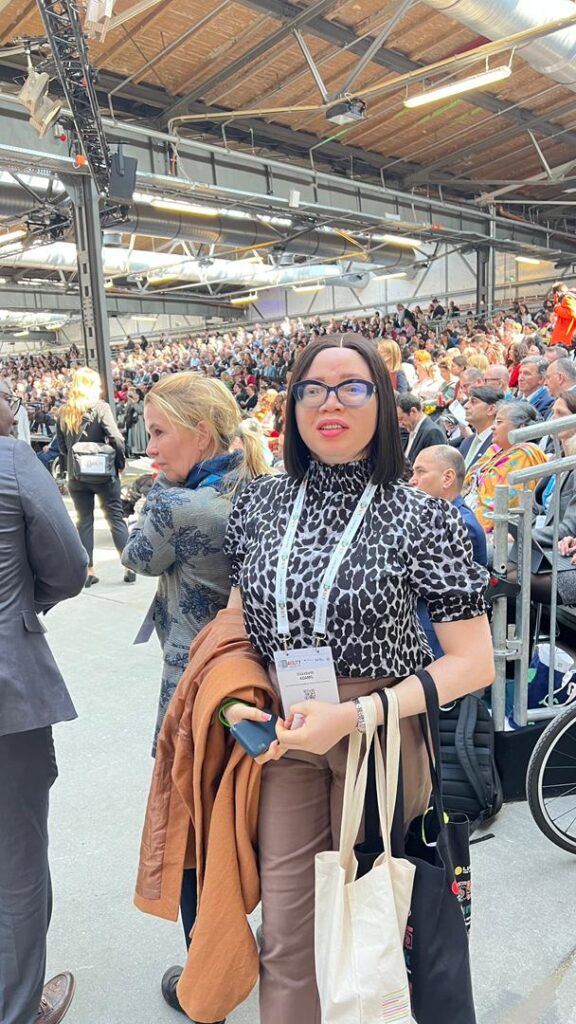
Our fireside chat brought 3 young Africans , Seidu from Ghana , Emmanuel from Rwanda and Myself from Nigeria to the stage as we led the audience through our developmental journey by sharing our personal stories of impact and resilience.
Our fireside chat which was held on the first day of the actual summit was the most attended fireside chat in the event with people standing around to listen as seats were fully occupiedz Our conversation left the audience glued to their seats as they anticipated the next part of the conversation and many of them stayed back after the fireside chat to discuss more , connect with us and most importantly shake our hands for jobs well done . In that split second , three of us became mini celebrities and I silently wished all eight African youth delegates selected for the event were granted visas to participate.
15% for the 15%, The AmanBerlin Declaration
With over 800 commitments made by civil society , government agencies and development agencies, the Aman Berlin Declaration, a key outcome of the global disability summit is made to ensure meaningful participation of persons with disabilities in the society . Most of the speakers emphasized the need for people with disabilities to no longer be seen as problems to be fixed but as partners of growth and development in the society. In simple terms , the 15% for the 15% acknowledges that at least 15% of the world’s population are persons with disabilities therefore 15% of international development programs must prioritize persons with disabilities.
This target is set to be achieved by 2028 when the next Global Disability summit would he held . It is therefore important that organizations of persons with disabilities, advocates and other individuals interested in disabilities inclusion should hold government accountable to fulfilling their commitment to this declaration. I was delighted to note that every country that commits to this declaration is listed on the GDS website thus making it easy for people hold their government accountable. Interestingly, I was aired on Channels Television speaking on behalf of and alongside other members of JONAPWD as we urged the Nigerian government to ensure that they fulfill the 15 for 15 commitment made, this drives home a strong message that we as the umbrella OPD in Nigeria are aware and would be delighted to participate in supporting our government to fulfill that commitment .
Nothing About Us Without Us
As a youth led advocate , this statement resonates with me hugely as it reflects the entire essence of inclusion advocacy , putting persons with disabilities at the forefront of decision making and cocreating. This is a beautiful way to promote personalized solutions that accommodates diverse perspectives and realities . A world that works on the path of nothing about us without us , is a world that ensures that persons with disabilities are not handed over a script but are given the notepad to write their experiences , own their stories and share their realities , it is a world where they are seen, heard and respected as valuable members of the society .
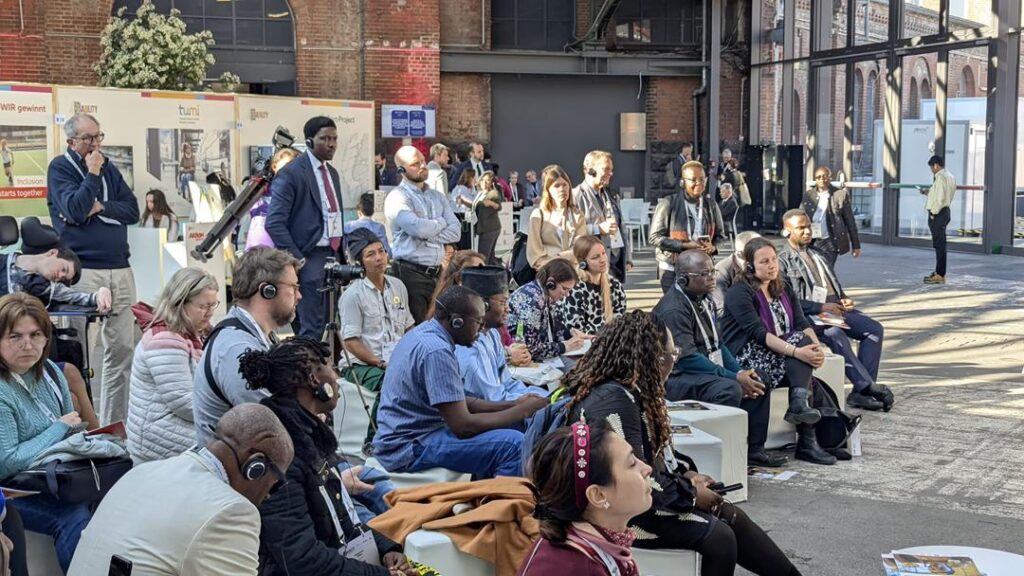
Key Takeaways and Insights
The summit reinforced the importance of inclusive policies and practices in all aspects of life. I was particularly struck by the for accessible infrastructure and technology that enable people with disabilities to fully participate in activities . There were different sessions on empowerment and leadership for people with disabilities and most importantly a wake up call from the speech of the deputy secretary of the UN saying that 98% of SDG indicators are off track for persons with disabilities, thus calling for a more inclusive approach to achieving the SDGs being that 2030 is upon us .
I realized the value of collective responsibility, shared values and dialogues as they impacted the quality of outcomes at the summit.
Reflections and Recommendations
Reflecting on my experience, the Global Disability Summit 2025 was not just a conference – it was a catalyst for change. I’ve returned home with a renewed sense of purpose and a deeper understanding of the global disability movement. To make future summits even more impactful, I would recommend increased accessibility features, such as readily available sign language instructors to facilitate networking and increased youth participation especially in panel discussions and keynote presentations.
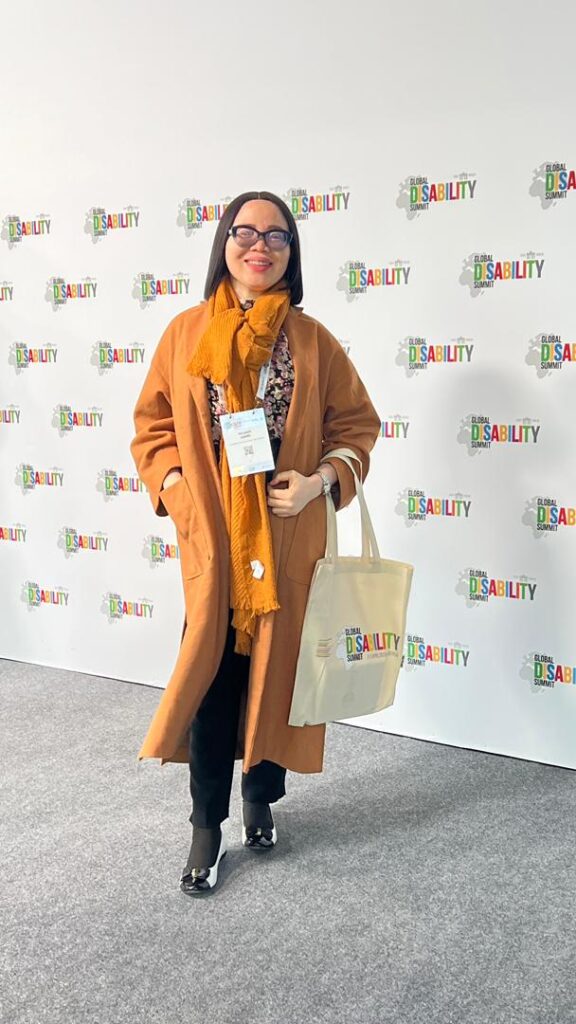
Let’s Get Involved
The Global Disability Summit 2025 was a transformative experience that has equipped me with the knowledge, skills, and network to advocate more effectively for disability inclusion in my community. I urge everyone to get involved in promoting disability rights and inclusion, whether through advocacy, volunteering, or supporting organizations that work with people with disabilities. Together, we can create a more inclusive and equitable world.
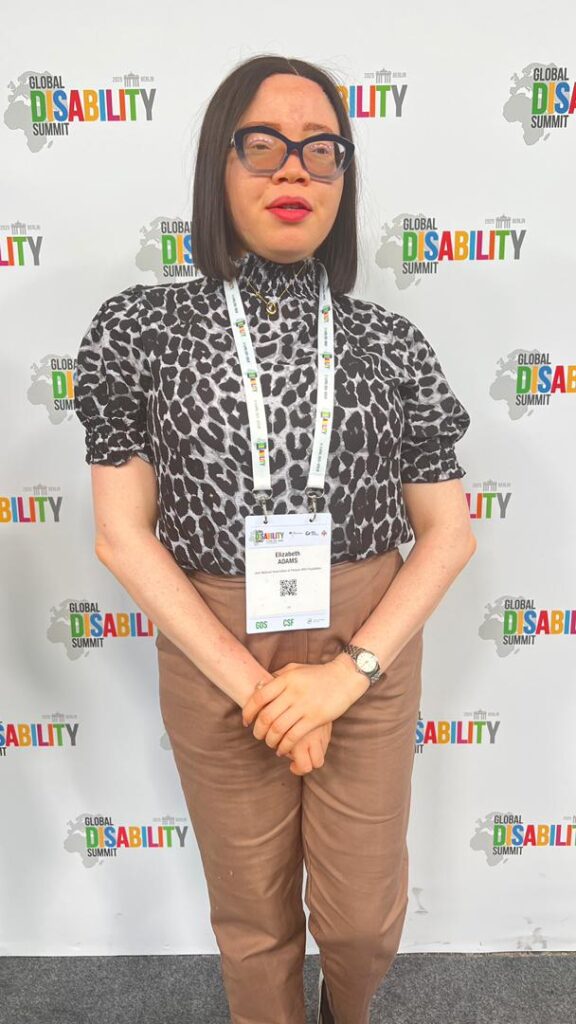

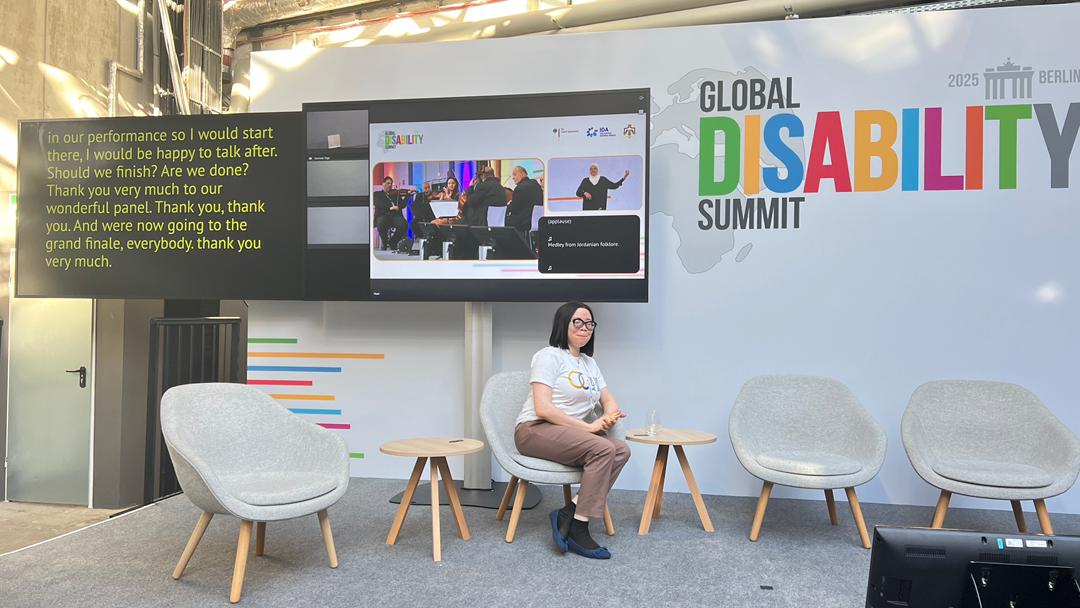
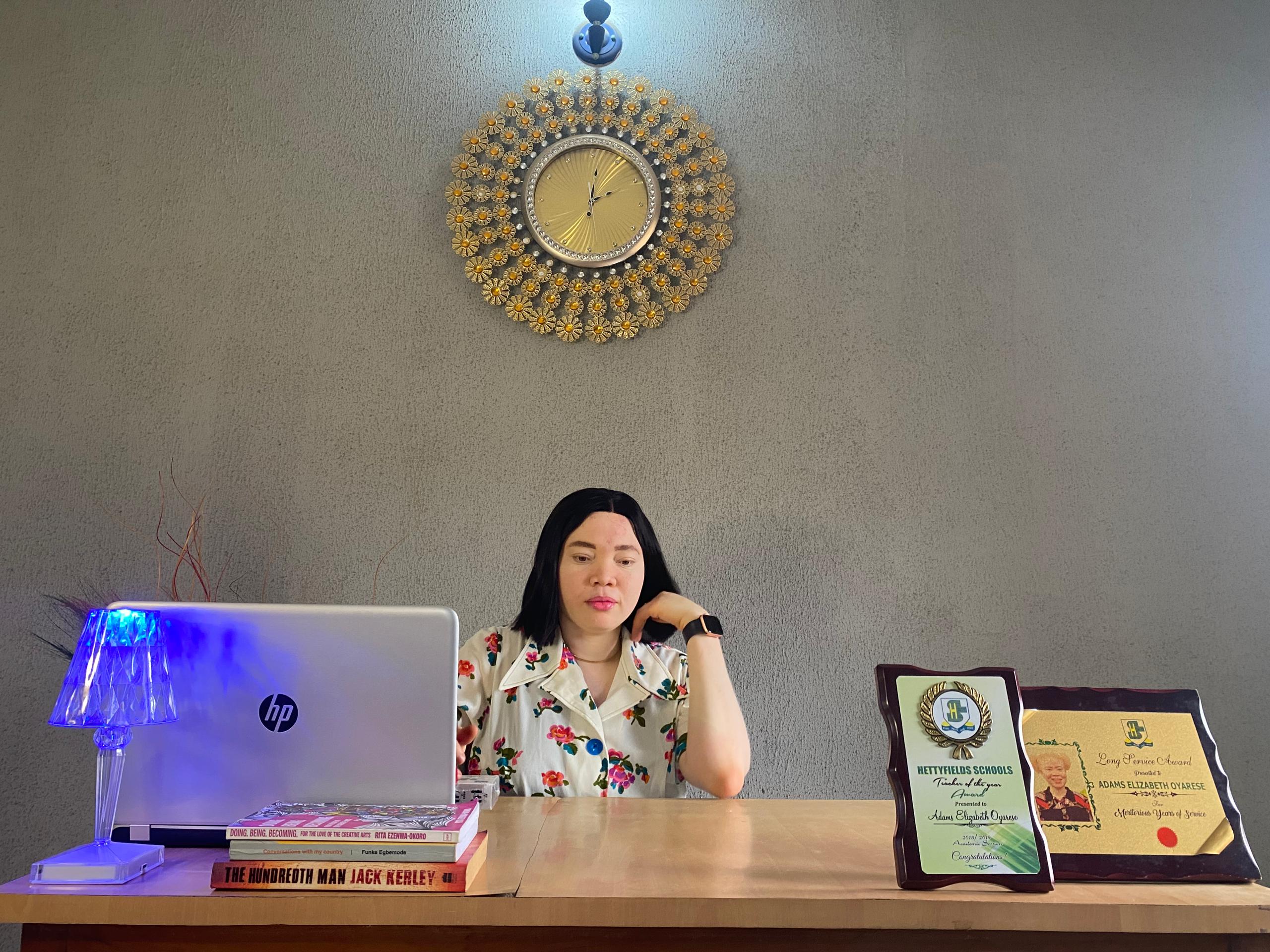
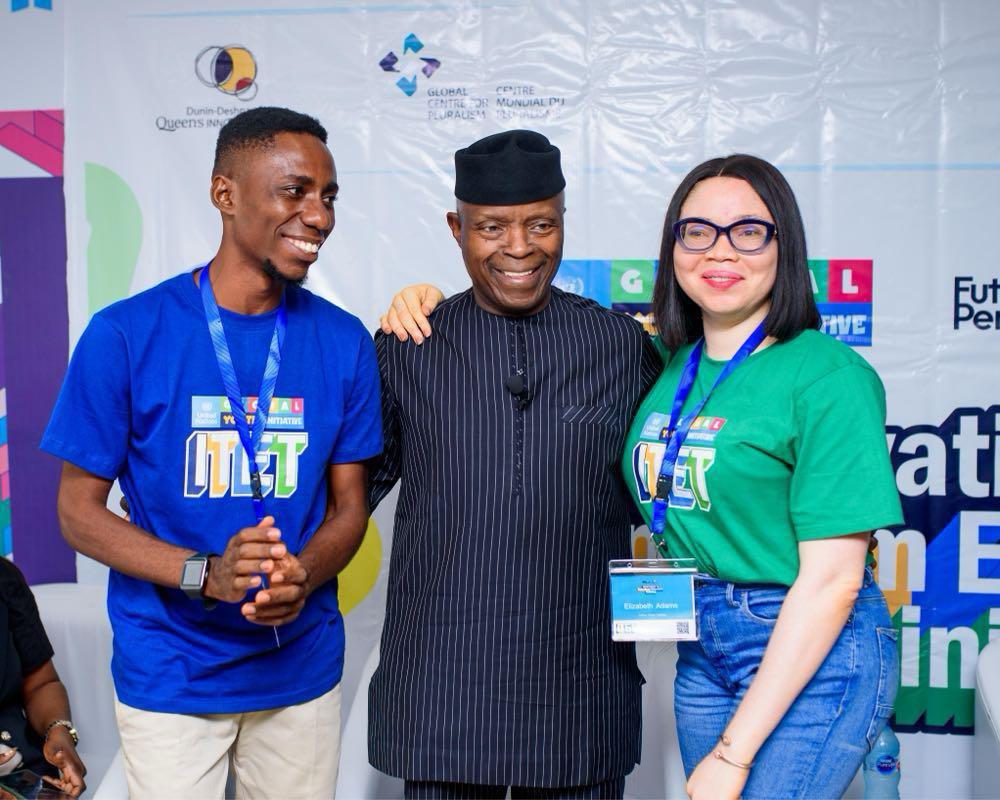
I will be grateful to be among you 🙏
I will be great full to be among you and show case my talents .